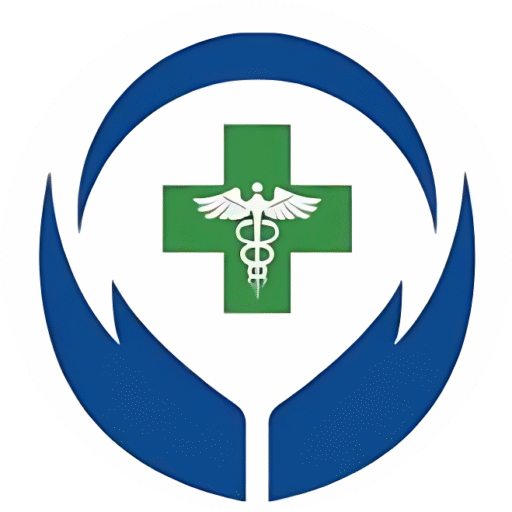Headache after waking up? Here are 6 Causes and 5 Treatments

Dr. Tehmasip Ali
26th May, 2025
⏱︎ 7 min read

Waking up with a pounding head can ruin your entire day before it even begins.
Whether it’s a headache behind the eyes, a one-sided headache after waking up, or just a heavy, throbbing pain the moment you get out of bed — it’s not normal, and it’s not something you can easily ignore.
In this guide, we’ll break down exactly why you wake up with a headache, what your body is trying to tell you, and most importantly, how to stop it. We’ve also included solutions backed by credible scientific research, so you’re not relying on random guesses or Google rabbit holes.
Whether your headache after waking up in the morning is occasional or happens every day, we’ll cover the 10 most common causes and 10 effective treatments, so you can finally start your mornings fresh and pain-free.
Table of Contents
6 Reasons Why You Wake Up with a Headache
1. Dehydration Overnight
- Your body loses water during sleep (through breathing and sweating).
- Without enough fluids, brain tissue contracts, triggering pain sensors, causing headaches when you wake up, especially in hot climates.
The European Journal of Neurology published findings that mild dehydration leads to reduced brain volume and morning headaches (Lindseth et al., 2013).
2. Teeth Grinding and Jaw Clenching (Bruxism)
Bruxism, the medical term for teeth grinding and jaw clenching during sleep, places tremendous stress on your jaw muscles, temples, and neck.
This muscle tension radiates upward, causing a headache after waking up that often feels like a tight band around your head or concentrated behind your eyes.
Research published in the Journal of Oral Rehabilitation demonstrates that 80% of people with bruxism experience morning headaches.
3. Poor Sleep Posture
- Sleeping with your neck twisted, unsupported, or compressed cuts off circulation and strains spinal nerves.
- This can lead to headaches behind the eyes or pressure in the base of the skull upon waking.
A 2020 review in Pain Research and Management highlighted poor cervical posture during sleep as a frequent cause of musculoskeletal morning headaches (Yilmaz et al., 2020).
4. High Blood Pressure (Hypertension)
Elevated blood pressure during sleep can cause morning headaches, particularly if your blood pressure spikes upon waking. These headaches often present as a throbbing pain at the back of your head or temples and may be accompanied by dizziness or nausea.
Research published in the Journal of Hypertension found that 17% of people with uncontrolled high blood pressure experience morning headaches.
The study noted that these headaches typically occur within the first hour of waking and may indicate dangerously elevated blood pressure levels that require immediate medical attention.
5. Depression or Anxiety
- Mental health conditions can interfere with deep sleep, REM cycles, and serotonin levels — all of which affect pain regulation.
- Result? Waking up with a headache, even if you technically “slept.”
According to the Mayo Clinic Proceedings, depression and anxiety disorders are closely linked with sleep-related headaches, especially in women (Breslau et al., 2000).
6. Medication Overuse
Frequent use of pain medications, including over-the-counter options like
- Ibuprofen
- Acetaminophen
- Aspirin
Can paradoxically cause morning headaches.
When medication levels drop during sleep, your brain experiences a rebound effect, triggering a headache when you wake up.
The American Headache Society reports that medication overuse headaches affect up to 1% of the population.
Looking for a General Physician in Lahore?
At AHMC, we provide you with one of the top MBBS general physicians in the city.

6 Treatments to Stop Morning Headaches
1. Establish a Consistent Sleep Schedule
Maintaining regular sleep and wake times helps regulate your body’s internal clock and can significantly reduce morning headaches. Going to bed and waking up at the same time every day, even on weekends, helps stabilize your circadian rhythm and improves sleep quality.
How:
Set a fixed bedtime and wake time, aiming for 7-9 hours of sleep nightly. Use an alarm clock and avoid hitting the snooze button. Create a 30-minute pre-sleep routine that signals to your body that it’s time to wind down.
2. Stay Hydrated Throughout the Day
Proper hydration prevents the dehydration-related headaches that commonly occur in the morning. Drinking adequate water throughout the day ensures your body has sufficient fluids to maintain proper brain function during sleep.
How: Drink 8-10 glasses of water daily, with the last glass consumed 2-3 hours before bedtime to avoid frequent nighttime urination. Keep a water bottle at your bedside to drink immediately upon waking. Monitor your urine color – pale yellow indicates proper hydration.
Why: A clinical trial by Spigt et al. (2012) found that increasing daily water intake by just 1.5 liters reduced headache frequency by 21% and decreased headache intensity by 13%. The research demonstrated that proper hydration maintains optimal blood volume and prevents the brain blood vessel dilation that triggers headaches.
3. Limit Caffeine Before Bed
Moderating caffeine consumption, especially in the hours before bedtime, can prevent withdrawal headaches and improve sleep quality.
How: Limit caffeine intake to morning + afternoon hours only, avoiding coffee, tea, or tea after 8 PM. If you must have a post-dinner caffeine, choose green tea over coffee.
4. Use Cold Therapy
Applying cold to your head and neck can provide immediate relief for morning headaches and help prevent future episodes.
How: For acute headaches, apply a cold compress or ice pack wrapped in a towel to your forehead or the back of your neck for 15-20 minutes.
Or taking a cold shower after waking up is a great option, too.
5. Treat Sleep Apnea (If You Have It)
During sleep apnea, your breathing repeatedly stops and starts.
This results in low oxygen levels and high carbon dioxide in the blood overnight,
This can be a rare (but possible) reason why you wake up with a headache.
But we can’t say anything about it here…
The best practice would be to meet your general physician, see if you’re diagnosed with sleep apnea, and then start the treatment.
Loving the Blog So Far?
We post daily health tips like this on our Instagram. Make sure you don't miss them out!
When to See a Doctor
Most morning headaches are harmless and can be fixed with small lifestyle changes. But if your headache after waking up becomes a pattern, or is paired with other symptoms, it’s time to get checked by a general physician.
Visit a doctor if:
You wake up with a headache more than 3 times a week
The headache is severe or worsens over time
You feel dizzy, nauseous, or confused after waking
You have vision problems with your morning headaches
Pain feels one-sided and pulsating (could be migraine or vascular)
You snore loudly or feel exhausted despite sleeping enough
You recently started or stopped a medication
There’s a sudden change in your headache pattern
Warning:
Don’t ignore a recurring headache after waking up in the morning —
It could be linked to deeper issues like sleep disorders, blood pressure problems, or even neurological concerns.
A proper consultation with a general physician in Lahore (like at Abu Hayat Medical Center) can help identify the exact cause and give you targeted treatment, instead of relying on guesswork.
Conclusion
A headache after waking up is more than just a bad start to your day — it’s your body’s way of telling you something’s off.
Now you know the 10 most common causes of morning headaches and the 10 treatments that actually work. Whether it’s dehydration, poor sleep posture, stress, or something more serious like sleep apnea, there’s always a next step you can take.
But if your headaches in the morning keep returning, don’t try to solve it alone. Talk to a qualified general physician, get the right tests, and stop guessing.
At our clinic in Lahore, we help people wake up pain-free every day — and we’re here to help you too.



